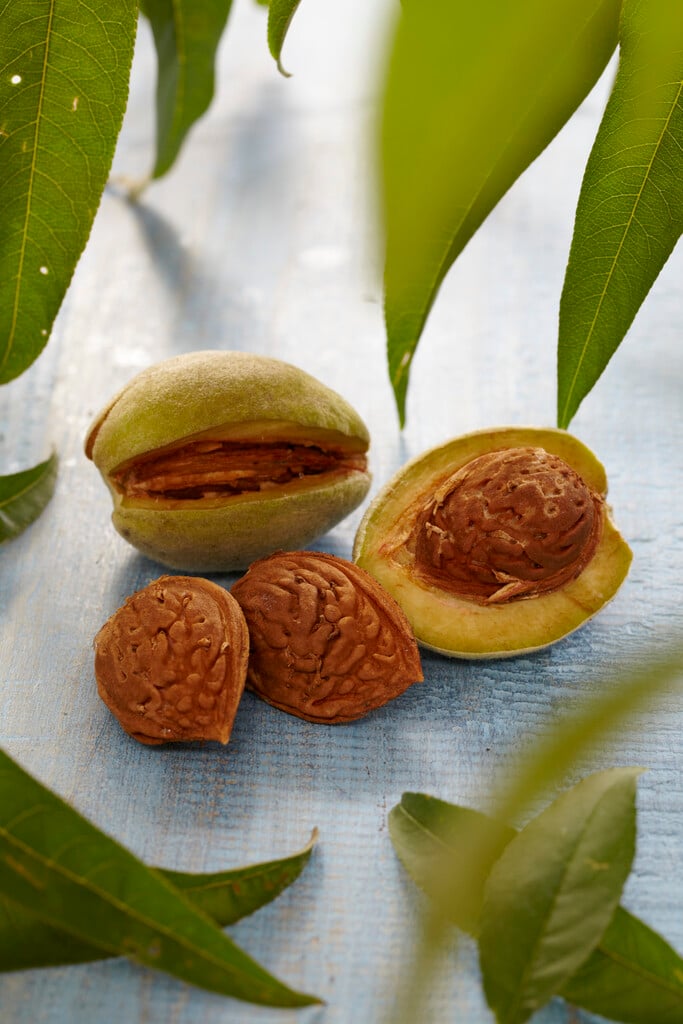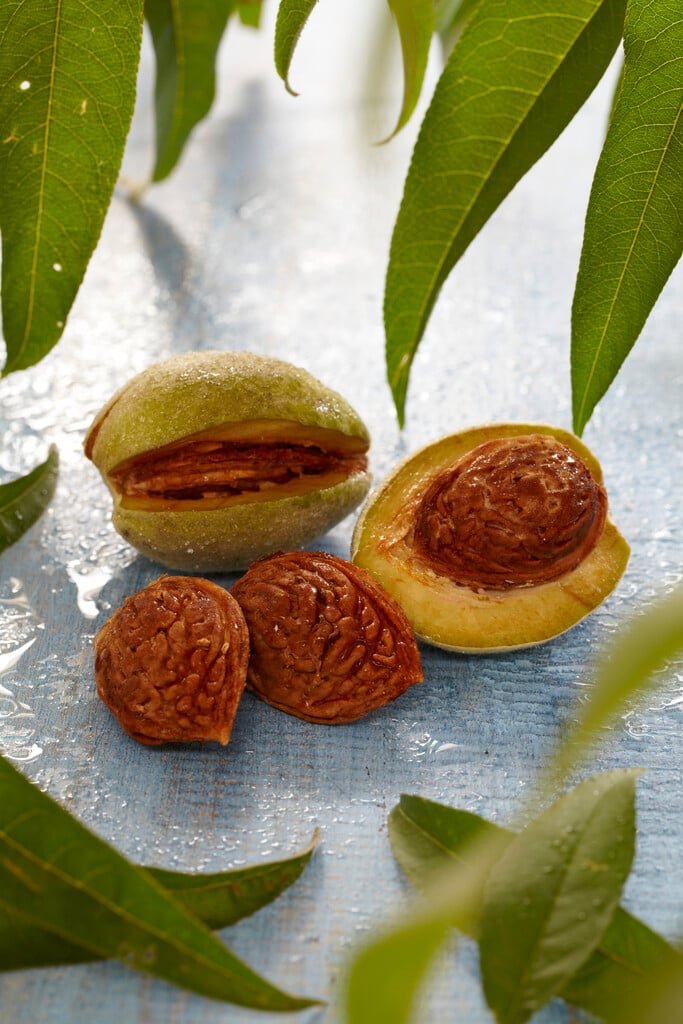Prunus × persicoides 'Robijn' (F)
hybrid almond 'Robijn'
Small spreading, deciduous tree about 5m tall, with tapered mid-green leaves to 12cm long. Masses of saucer-shaped, pale pink flowers produced in early spring before the leaves open, are followed by pale green, velvety fruit containing edible nuts ready to pick in early autumn. Fruits from a young age
Size
Ultimate height
2.5–4 metresTime to ultimate height
10–20 yearsUltimate spread
1.5–2.5 metresGrowing conditions
Moisture
Moist but well–drainedpH
Acid, Alkaline, NeutralColour & scent
| Stem | Flower | Foliage | Fruit | |
| Spring | Pink | Green | ||
|---|---|---|---|---|
| Summer | Green | |||
| Autumn | Green Gold | Green | ||
| Winter |
Position
- Full sun
Aspect
East–facing or South–facing or West–facing
Exposure
Sheltered Hardiness
H5Botanical details
- Family
- Rosaceae
- Native to GB / Ireland
- No
- Foliage
- Deciduous
- Habit
- Spreading branched
- Genus
Prunus can be deciduous or evergreen trees or shrubs with showy flowers in spring, and often good autumn foliage colour. Some have edible fruit in autumn, and a few species have ornamental bark
- Name status
Accepted
How to grow
Cultivation
Grow in moist but well-drained, moderately fertile soil in a sheltered position in full sun. Fruits can be harvested, at a young age. Late frosts may damage early blossom
Propagation
Suggested planting locations and garden types
- City and courtyard gardens
- Cottage and informal garden
- Wildlife gardens
- Edible fruit
- Flower borders and beds
- Wall side borders
Pruning
Pruning group 1 as a free-standing tree, may also be fan-trained on a warm wall. See train fan-trained trees and pruning established fans. Prune in mid-summer if silver leaf is a problem
Pests
May be susceptible to damage from caterpillars, leaf-mining moths and bullfinches
Diseases
May be susceptible to peach leaf curl, silver leaf, bacterial canker, blossom wilt and honey fungus
Love gardening
Sign up to receive regular gardening tips, inspiration, offers and more
View our Privacy Policy
Get involved
The Royal Horticultural Society is the UK’s leading gardening charity. We aim to enrich everyone’s life through plants, and make the UK a greener and more beautiful place.

